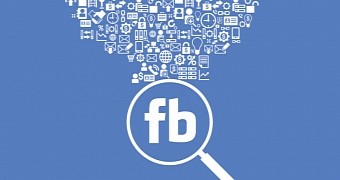Now that the French election is a thing of the past, Facebook is taking it upon itself to continue the fight against fake news in another European country - the United Kingdom.
The social network is taking some precautionary steps ahead of the June General Elections in the UK by buying ad space in British newspapers and printing an anti-fake news leaflet.
Facebook took out ads in several major newspapers, including The Times, the Daily Telegraph and The Guardian. The ads list ten things that users should look out for when deciding whether the information they read is genuine.
Among the tips the social network is sharing with users is checking the headlines, URLs, photos and even the dates of the articles since it often happens for old articles to be shared after months or years and to be taken as if they were brand new by the readers. They also advise people to investigate the source, to watch for unusual formatting, to check the evidence, look at other reports and, quite importantly, to figure out if the story is a joke in the first place. So many times over the years, articles from satire sites were taken seriously by people without a second thought.
A growing trouble
The fake news issue has been growing over the past few years, although it certainly reached its peak during the US presidential election last year. Since then, Facebook has taken numerous steps to fight this problem on its network, including removing fake accounts responsible for spreading such articles. Ahead of the French elections, the company announced it had shut down 30,000 such accounts.
"People want to see accurate information on Facebook and so do we. That is why we are doing everything we can to tackle the problem of false news," said Simon Milner, Facebook director of policy for the UK.
The company admitted that it wasn't going to solve the problem on its own, which is why they started working with third-party fact-checkers during the elections so they can independently assess facts and stories.

 14 DAY TRIAL //
14 DAY TRIAL //